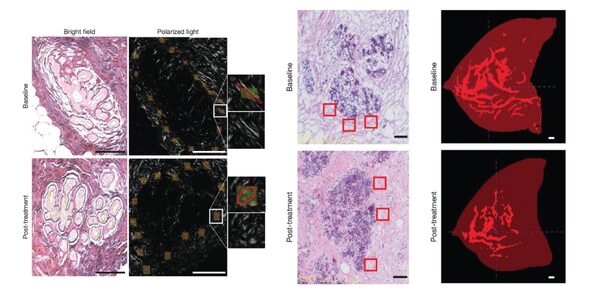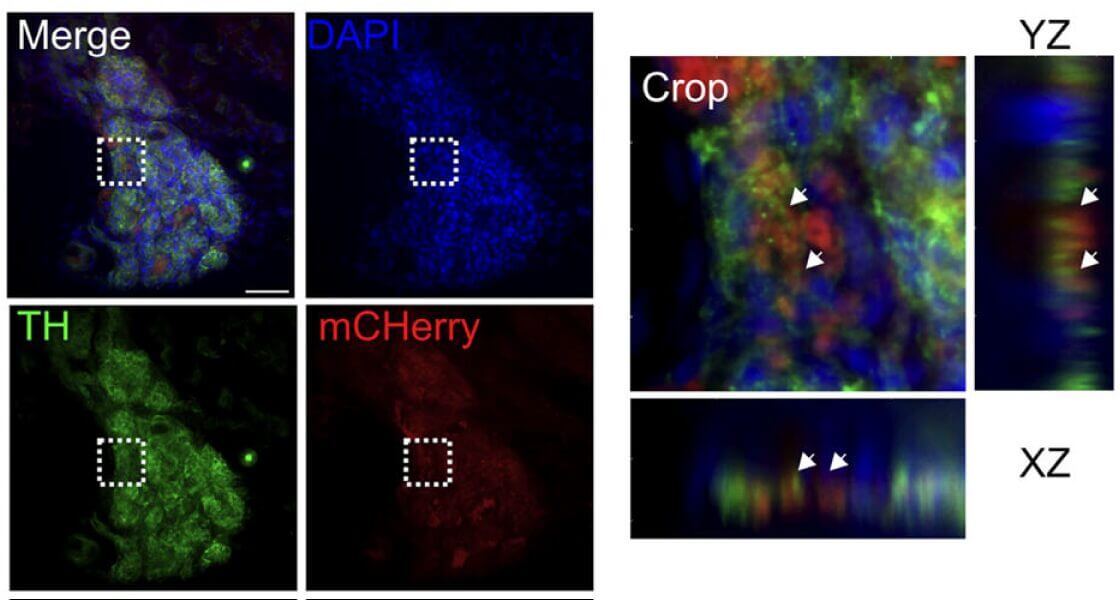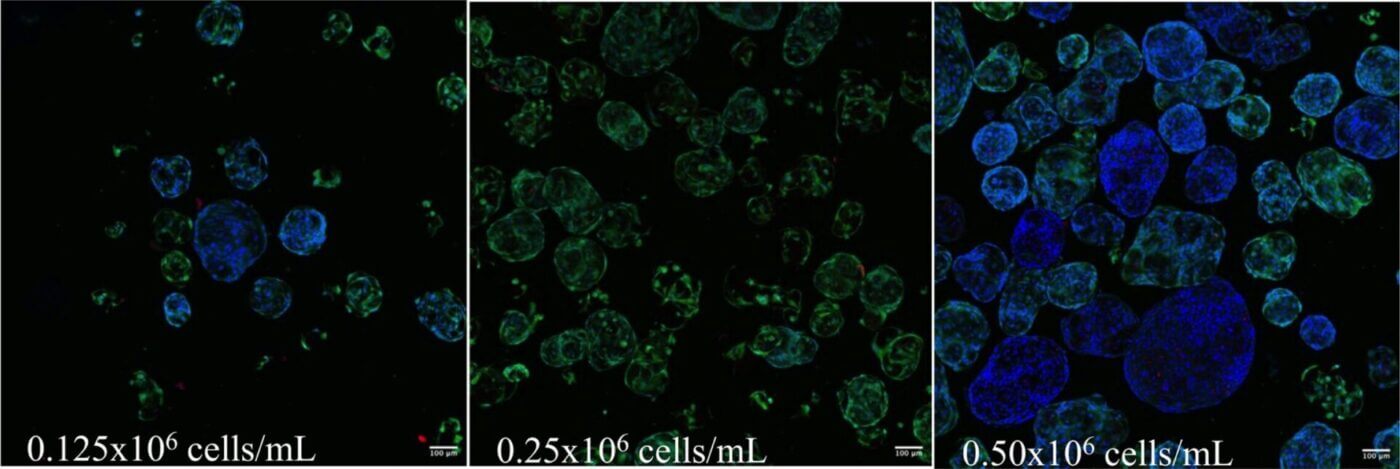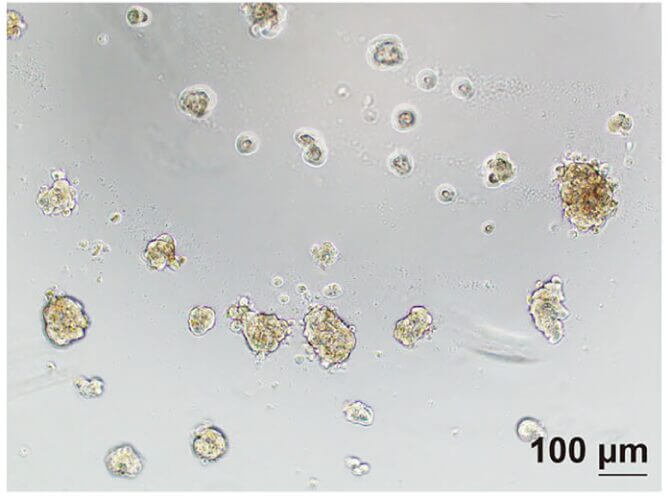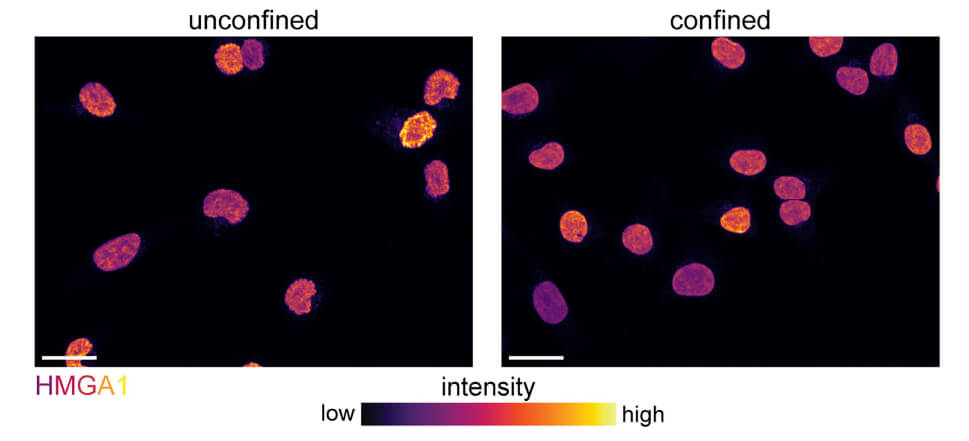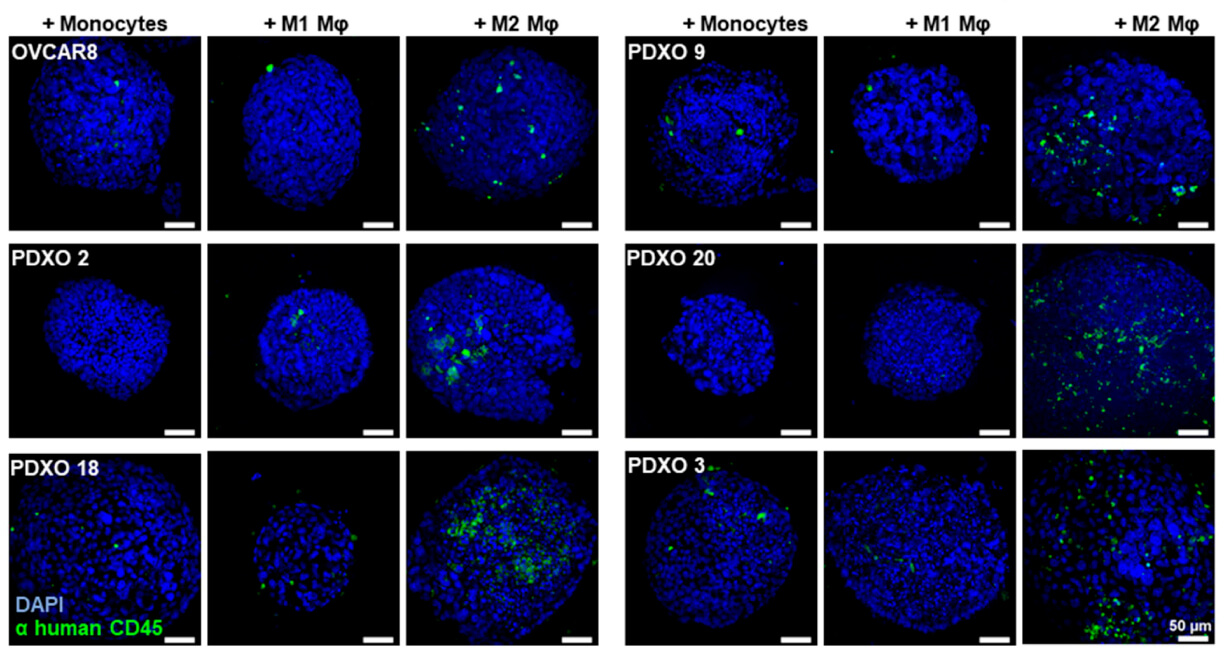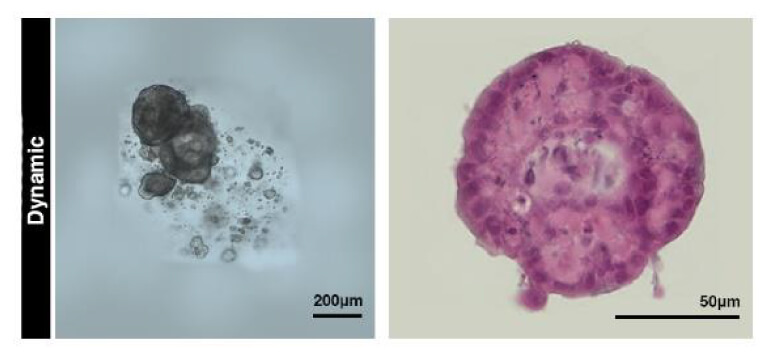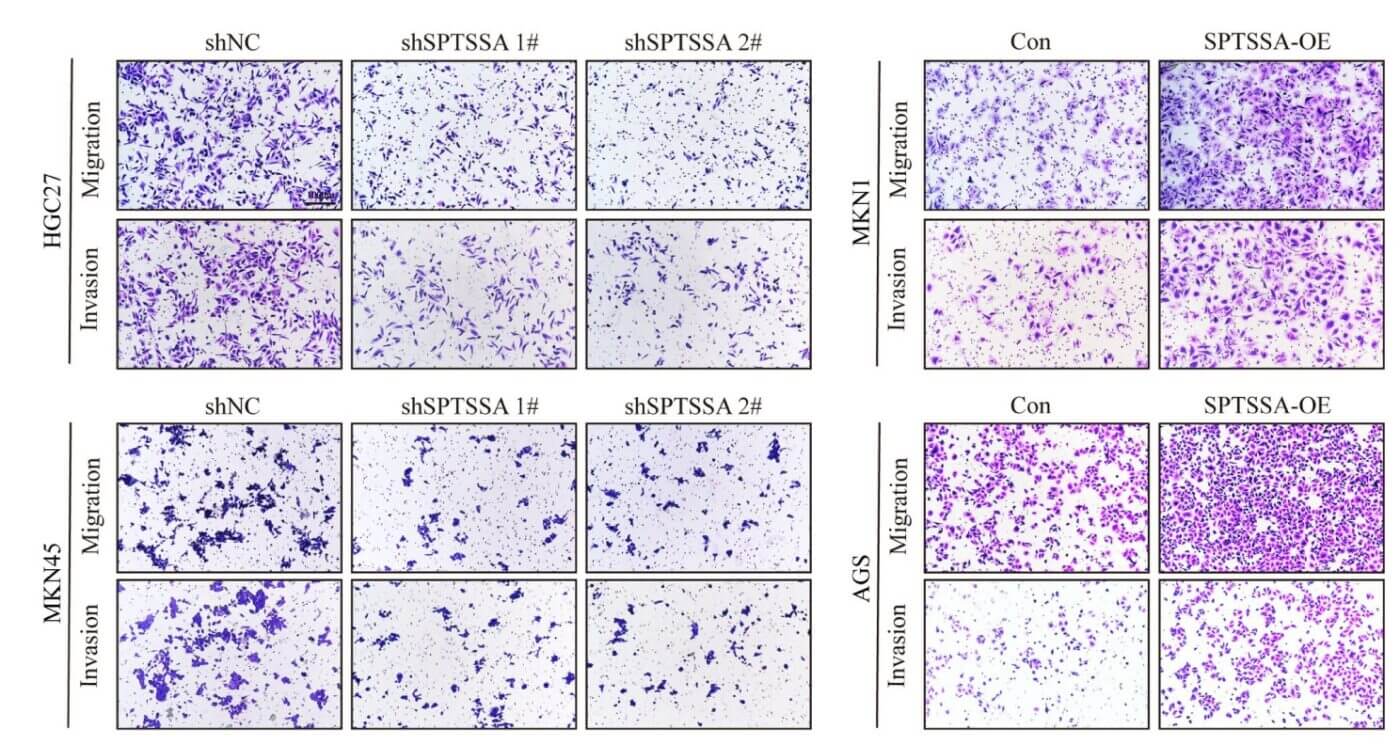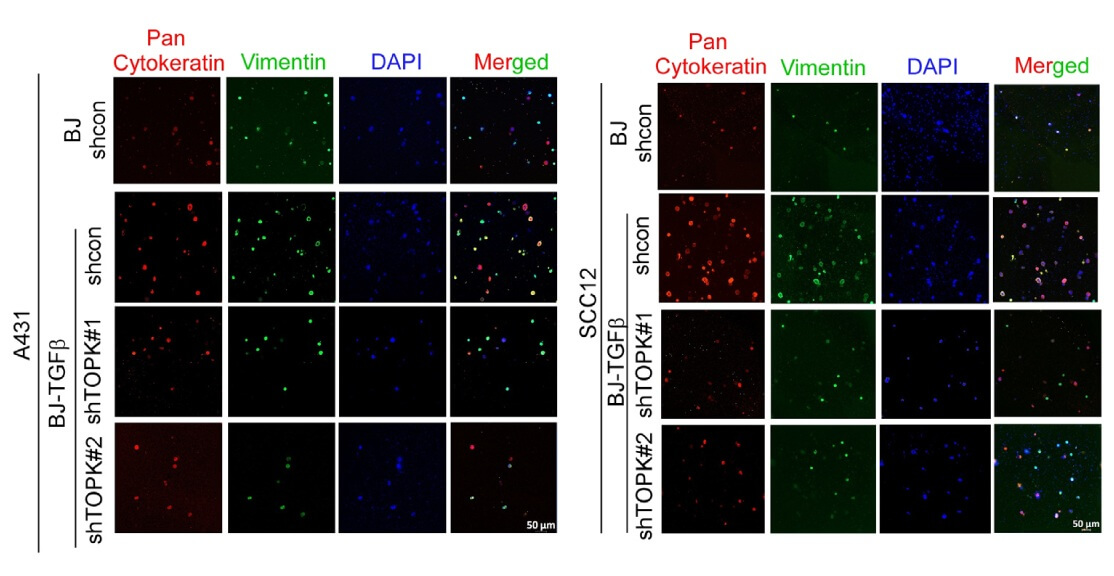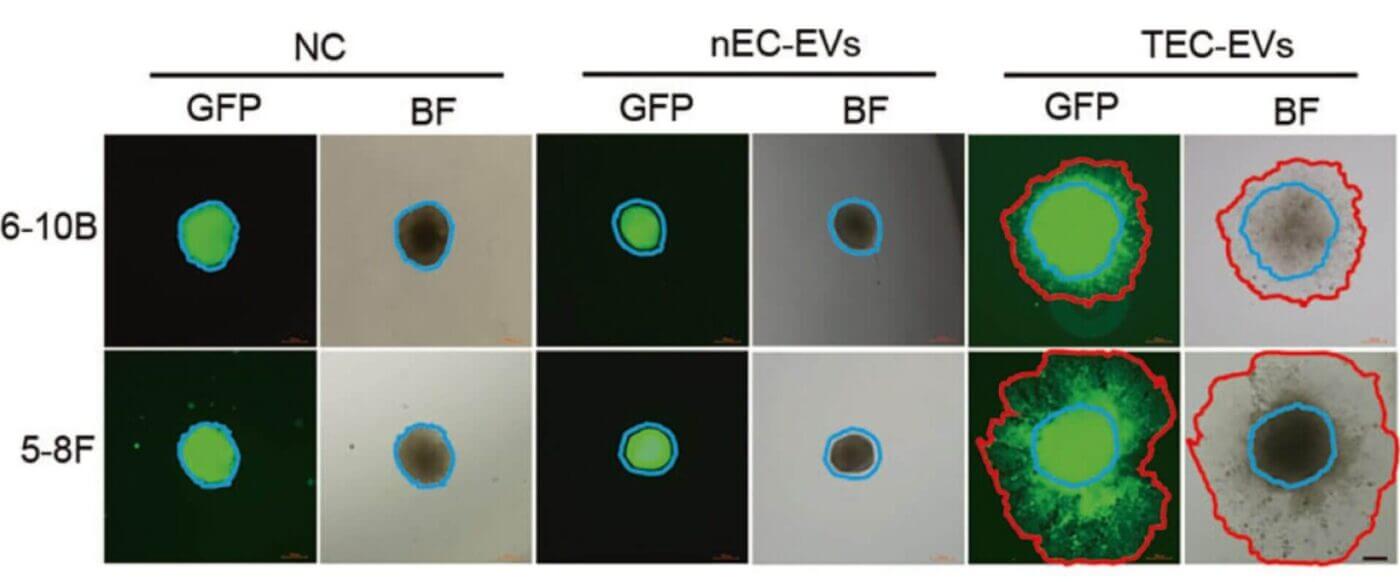VitroGel® enables precise modeling of breast tissue stiffness to study how anti-progestin therapy suppresses cancer cells. Breast cancer remains the leading cause of cancer-related death in women worldwide. A key risk factor in breast cancer development is partly attributed to high mammographic density, which is not only visible on mammograms but is also driven by […]
Category Archives: Research Highlights
VitroGel® 3D enables precise chemogenetic targeting of carotid body cells to uncover metabolic function. During intense exercise, our bodies have a “ceiling” for oxygen consumption, known as peak oxygen uptake (VO₂ peak), which is a key determinant of athletic endurance. For decades, scientists have known that a tiny organ in the neck, the carotid body, […]
VitroGel® MSC overcomes the limitations of 2D and microcarrier systems by delivering a reproducible, scalable, and functional workflow for MSC biomanufacturing, from expansion to genetic engineering. The production of mesenchymal stem cells (MSCs) at a clinical scale faces persistent challenges. Traditional 2D culture systems and microcarriers are limited by scalability, high costs, and difficulties in […]
Uncovering the power of fibroblast-derived migrasomes in wound healing with the help of VitroGel® 3D’s advanced 3D culture system Effective skin wound healing requires precise cell–cell communication and coordination across tissue types. However, the role of newly discovered migrasomes—vesicular organelles derived from fibroblasts—was not fully understood in the context of tissue repair. To study these […]
VitroGel® Cell Invasion Assay Kit empowers researchers to model cancer invasion under physiologically relevant 3D conditions. Melanoma, a deadly form of skin cancer, is notorious for its ability to switch between growing and spreading – a phenomenon known as phenotypic plasticity. For decades, scientists have suspected that cues from the tumor’s surroundings trigger this switch, […]
VitroGel® ORGANOID 3 turns tumor–immune interactions into clear insights without the variability of animal-based matrices. A major challenge in ovarian cancer is chemotherapy resistance, often driven by the tumor’s immune microenvironment. Traditional culture systems fail to mimic these complex cell–cell interactions. Using VitroGel® ORGANOID 3 (VHM04-3), researchers at the University of New Mexico established 3D […]
VitroGel® empowers dynamic 3D organoid growth, revealing taste biology and beyond. Studying taste receptor cell biology is challenging due to their complex structure, short lifespan, and limited survival in vitro. Traditional static cultures often fail to maintain mature cell types and functional activity. In this study, researchers used VitroGel® Hydrogel Matrix within the ClinoStar® dynamic […]
VitroGel® RGD enables critical invasion assays to reveal the role of SPTSSA in tumor progression Gastric cancer (GC) is a deadly global health threat, often diagnosed too late due to its aggressive spread and ability to evade the immune system. A major hurdle in treatment is understanding how cancer cells invade tissues and suppress immune […]
Using VitroGel® to model tumor–stroma crosstalk in 3D and uncover new therapeutic targets in skin cancer. Solar UV-induced skin cancers, like cutaneous squamous cell carcinoma (cSCC), are driven not only by cancer cells themselves but also by their interaction with surrounding fibroblasts. Traditional 2D cultures fail to replicate this complex tumor–stroma communication, limiting our understanding […]
Both VitroGel® Hydrogel Matrix and VitroGel® Cell Recovery Solution streamline 3D cell culture and cell isolation for high-impact studies of the tumor microenvironment. Understanding the mechanisms driving nasopharyngeal carcinoma (NPC) progression and metastasis requires physiologically relevant in vitro models. In this study, researchers investigated how FLT1-enriched extracellular vesicles (EVs) mediate a pro-metastatic feedback loop between […]

